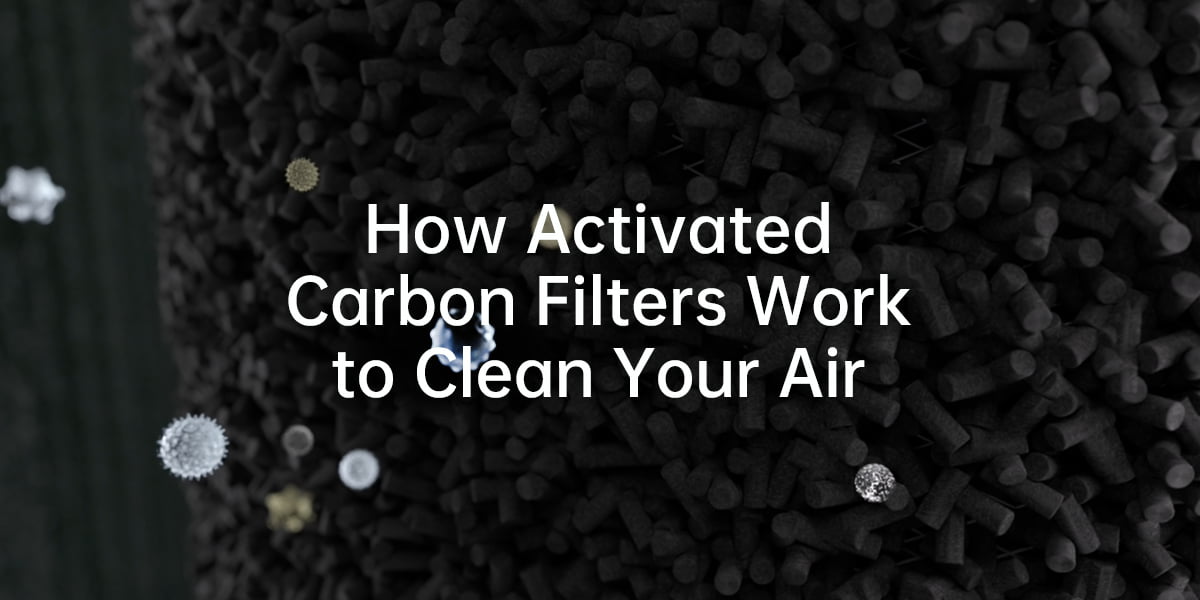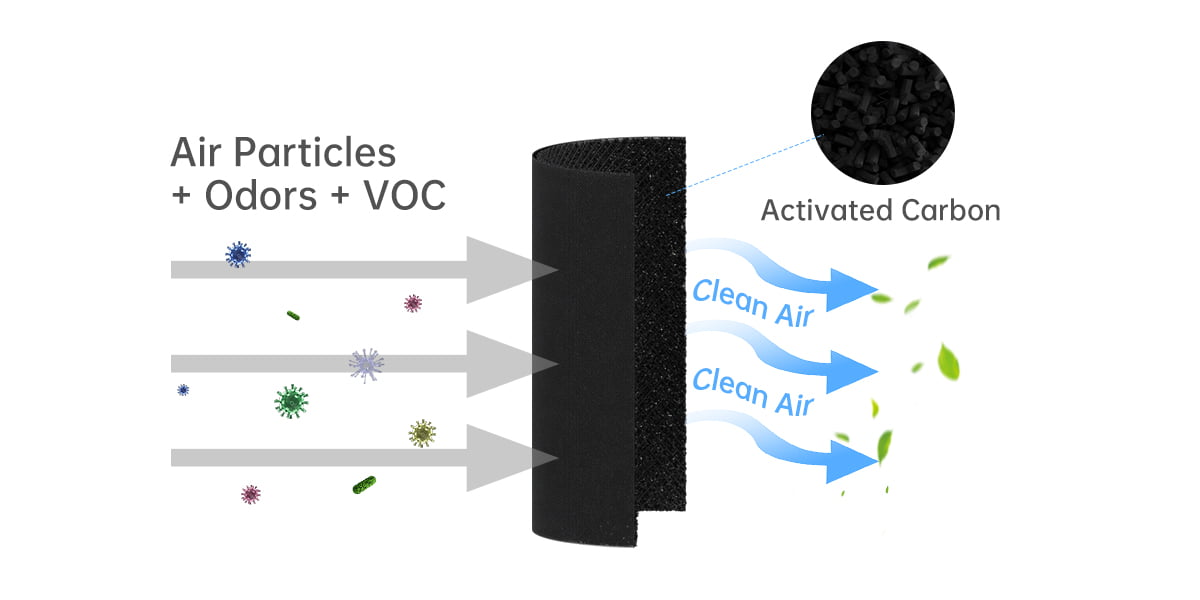How Activated Carbon Filters Work to Clean Your Air?

Activated carbon filters are a type of air filter that use activated carbon to remove impurities from the air. Activated carbon is a highly porous material that is treated with oxygen to open up millions of tiny pores between the carbon atoms, creating a large surface area for adsorption.
When air passes through an activated carbon filter, the impurities in the air are attracted to the surface of the carbon and become trapped in the tiny pores. This process is called adsorption, which is different from absorption in that the impurities are not absorbed into the carbon but rather adhere to its surface.
Activated carbon filters are effective at removing a wide range of impurities from the air, including volatile organic compounds (VOCs), odors, and chemicals. They are often used in combination with other types of air filters, such as HEPA filters, to provide comprehensive air cleaning.

However, it's important to note that activated carbon filters have limitations. First, they are not effective at removing particulate matter, such as dust and pollen. Second, they have a limited lifespan. Over time, the pores in the activated carbon become filled with impurities, reducing its effectiveness. For this reason, it's important to replace activated carbon filters regularly according to the manufacturer's recommendations.
Overall, activated carbon filters can be an effective way to improve indoor air quality by removing impurities from the air. However, they should be used in combination with other types of air filters to provide comprehensive air cleaning.



